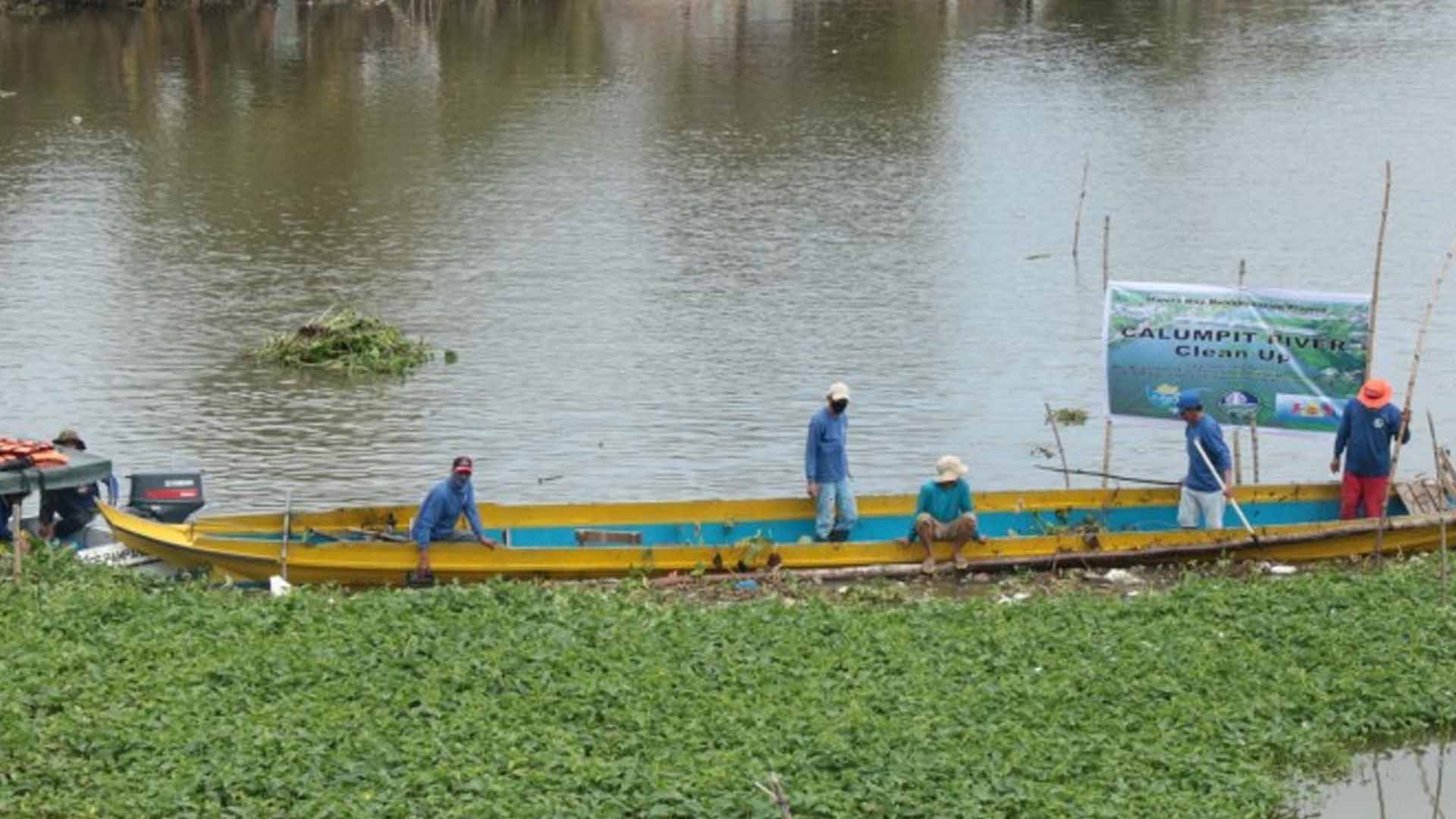The Department of Environment and Natural Resources (DENR) will start the massive cleanup of the Calumpit River in Bulacan this month.
The move aims to lessen flooding in low-lying areas in Bulacan and to fast-track the rehabilitation of Manila Bay areas in Central Luzon.
The more than 8-kilometer stretch Calumpit River is a tributary of the larger Pampanga River, and the town itself serves as a natural catch basin for flood waters coming from Nueva Ecija and Pampanga.
The first phase of the cleanup project will transpire in the 1.5-kilometer stretch of the Calumpit River that covers barangays of Sapang Bayan, Gatbuca, Frances, and Poblacion.
In a statement on Monday, Environment Secretary Roy Cimatu cited the need to haul submerged garbage in the Calumpit River that was crucial to prevent flooding due to clogged waterways.
“Massive cleanup operations that involve desilting and grubbing of waste materials will unclog our waterways and bring back the depth of our river system that will prevent the overflow of a great body of water especially during the rainy season,” he said.
Cimatu added clearing the Calumpit River system would also benefit other flood-prone towns in Bulacan, such as Hagonoy, Paombong and some parts of Malolos City.
Paquito Moreno Jr., executive director of the Department of Environment and Natural (DENR) in Central Luzon, said the bathymetric study of the Mines and Geosciences Bureau in Region 3 showed that over 300,000 cubic meters of garbage and silt were found in the Calumpit River, where a thick accumulation of admixed sediments was observed in the stretch along the Gatbuca Bridge.
“Garbage-free waterways will not only mitigate flooding during the onslaught of typhoons, but it will also reduce the pollution of river systems in Bulacan that directly drain to the Manila Bay,” he said in a social media post.
Aside from the close coordination with local government units, the DENR also partnered with GM Faustino Construction, Inc. to accelerate grubbing and hauling activities in the Calumpit-Angat River System.
The construction company will provide free utilization of its equipment and workforce to facilitate grubbing and transfer of silt materials to containment areas.
Since the Manila Bay rehabilitation program started in 2019, the DENR has collected 168,562 tons of wastes from more than 22,580 estero, river, and coastal cleanups conducted in Bulacan, Bataan, Pampanga, Tarlac, and Nueva Ecija. (PNA)







